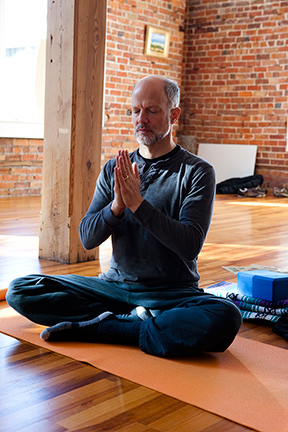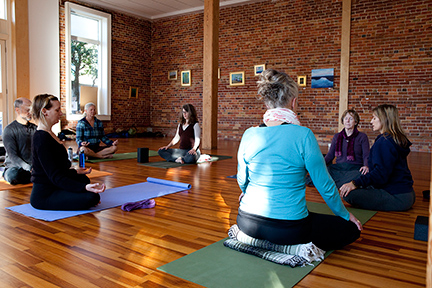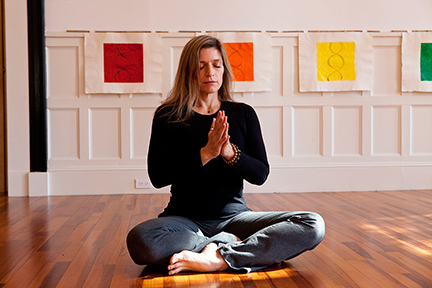This article was first published in Religion News Wilmington on January 23, 2012 with the title “Mindfulness as a Spiritual and Secular Practice Increases Wellbeing.”
Mindfulness for wellbeing is awareness of the present moment without judgment. It involves slowing down and focusing the attention on the body, feelings, and mind. It is an invitation to be in the present moment with our sensations, thoughts, and feelings and to acknowledge them as they are without judging them as good/bad, pleasant/unpleasant. Maintaining attention on the present moment prevents us from becoming lost in regret about the past and worried about the future, thus allowing us to experience a state of calm and peace.
Mindfulness meditation is most often associated with Vipassana, or Insight Meditation. It’s origins can be traced back to the Siddharta Gautama, a prince who taught 2,500 years ago that meditation was a path to enlightenment and the alleviation of suffering and ignorance. Following his own experience of enlightenment, Siddharta Gautama became known as the Buddha. Buddha is a title that means “one who is awake.”
Contrary to the popular belief of some, those who practice mindfulness meditation are not worshipping Buddha as a god but are following a spiritual path toward enlightenment and the alleviation of suffering and ignorance. Persons of all religious faiths can practice mindfulness meditation, and people tend to find that it serves as a compliment to their own religious practices and beliefs.
For a number of years, scientists have utilized modern medical technology to study the brains of Buddhist monks. They have found increased activity in the left prefrontal cortex of experienced Buddhist practitioners. This area of the brain is associated with empathy and happiness or pleasant feelings. Studies have also documented changes in brain wave activity, with increased brain waves that produce calm and peacefulness.
Mindfulness meditation has become a common practice in America, both as a spiritual practice and a secular practice. Many yoga studios across the country offer classes in mindfulness meditation. Jon Kabat-Zinn, PhD developed the Mindfulness Based Stress Reduction course at University of Massachusetts Medical Center in 1979 as a secular practice to alleviate suffering amongst patients in the hospital. The program is offered at hundreds of locations internationally, including Duke Integrative Medicine and Stanford Hospital and Medical School. MBSR teaches meditation and gentle yoga for stress reduction and cultivating a sense of peace and ease.
MBSR has been well researched during the past several decades and has been shown to reduce anxiety, panic, depression, and symptoms related to a variety of medical conditions, including high blood pressure, coronary artery disease, chronic pain, headache, fibromyalgia, Diabetes Type I, Irritable Bowel Syndrome, Asthma, arthritis, Psoriasis, multiple sclerosis (MS) and other conditions. Recent studies show that MBSR participants had increased brain grey-matter density in areas of the brain associated with learning, memory, self-awareness, empathy, and compassion and decreases in grey-matter density in an area of the brain that plays a significant role in anxiety and stress. MBSR has been shown to significantly improve health-related quality of life. In addition, mindfulness is now being utilized to help people with food/weight challenges, parenting, and substance abuse relapse prevention.
Whether practiced as a spiritual practice or a secular practice, people who practice mindfulness meditation are generally interested in alleviating suffering, and most report increased feelings of peace, ease, and wellbeing.


